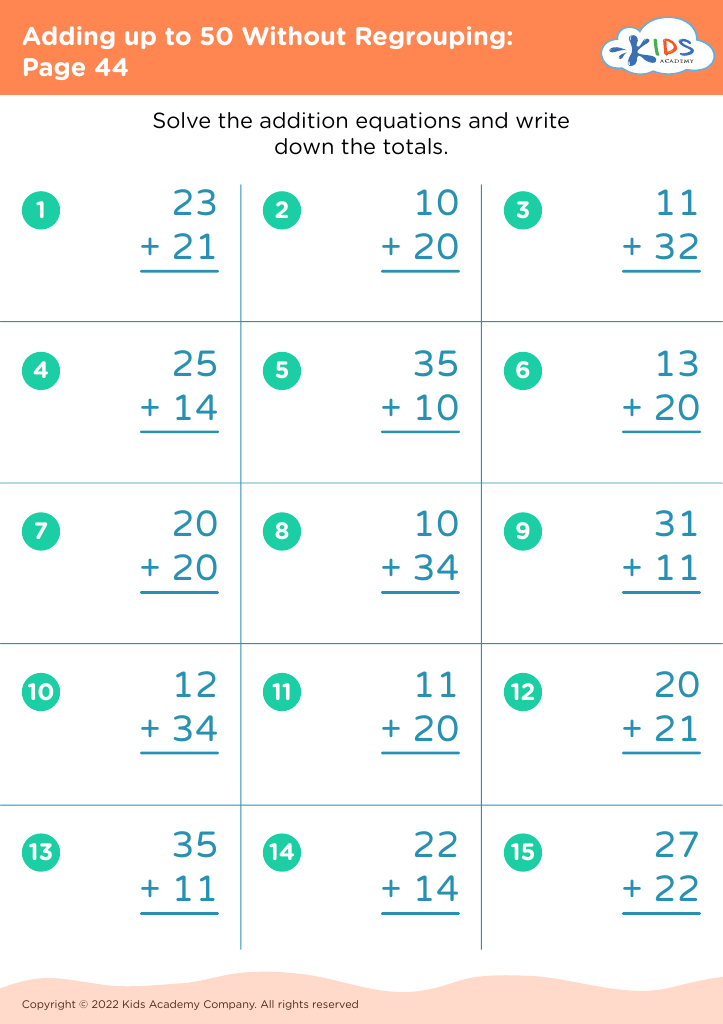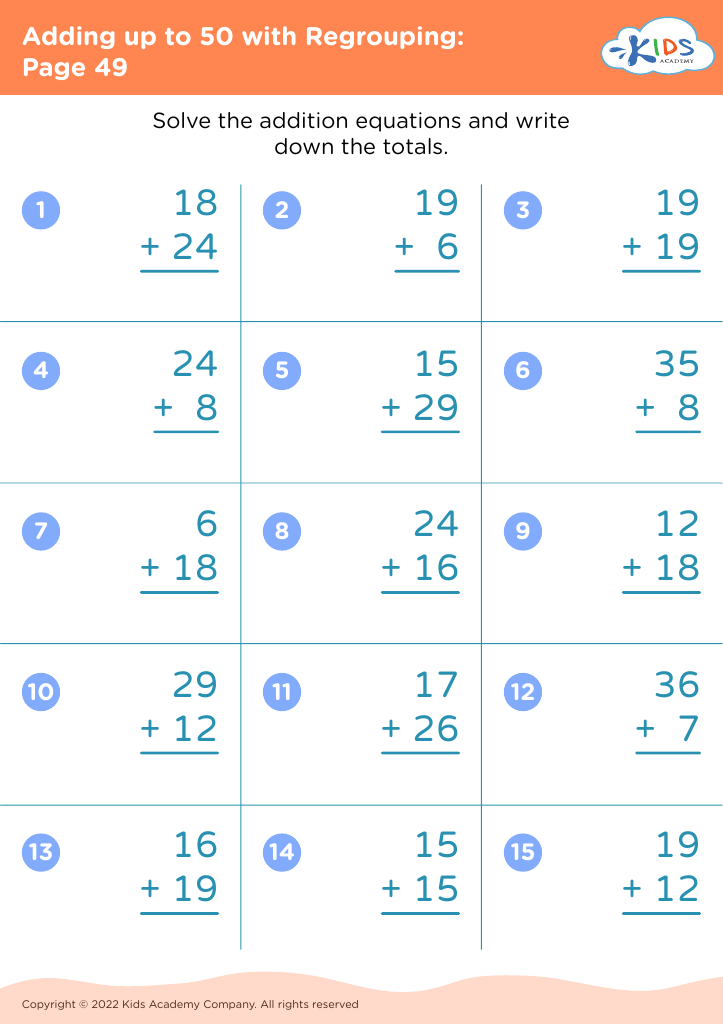Develop fine motor skills Adding up to 50 Worksheets for Ages 7-8
4 filtered results
-
From - To
Introducing our "Develop Fine Motor Skills: Adding up to 50 Worksheets for Ages 7-8" - a fantastic resource designed to merge quality education with skill development! Tailored for children aged 7-8, these worksheets focus on enhancing fine motor skills crucial for writing and hand-eye coordination. Each worksheet presents engaging addition problems up to 50, making math practice both enjoyable and educational. With vibrant illustrations and interactive exercises, kids naturally improve their mathematical fluency while bolstering essential fine motor skills. Perfect for home or classroom use, these worksheets ensure your child’s learning journey is both productive and fun!
Developing fine motor skills in children aged 7-8 is crucial as it enables them to perform everyday tasks with greater ease and precision. Activities such as writing, buttoning clothes, and handling small objects all depend on well-developed fine motor abilities. By focusing on these skills, parents and teachers can help children gain confidence and independence. Fine motor skills also lay the foundation for academic success. For example, children who are adept at holding and manipulating a pencil are better equipped to write legibly and efficiently, enhancing their ability to express ideas and complete assignments with less frustration.
Additionally, being able to add up to 50 by this age builds essential mathematical foundations. Understanding basic addition ensures that children develop numeric fluency and problem-solving skills vital for more complex arithmetic and programmed future use in life. Mastery of these skills contributes to higher levels of academic achievement and fosters a positive attitude towards learning.
Overall, prioritizing the development of fine motor skills and arithmetic proficiency ensures that children are not only prepared for the academic challenges ahead but also fosters independence and confidence in their abilities, both of which support well-rounded, successful growth.
















